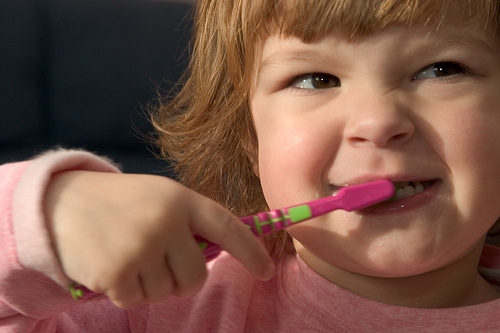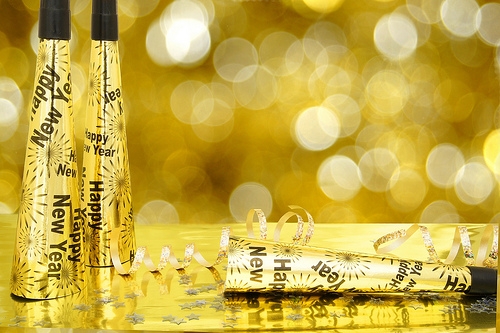January 13th, 2015

“But they are only baby teeth; won’t they just fall out?” Our team at Surf City Pediatric Dentistry has had these questions asked many times from parents over the years. Primary teeth, or “baby teeth,” will indeed come out eventually, to be replaced by permanent teeth as the child grows and develops. These teeth serve a great purpose as the child continues to develop and require specific care.
Because baby teeth are temporary, some parents are unenthusiastic about fixing cavities in them. This may be due to the cost or having to force a child undergo the process—especially having to receive an injection. But if a cavity is diagnosed early enough, an injection can often be avoided. More important, failure to fill cavities in primary teeth when they are small and manageable can have lasting consequences in cost and health concerns. Serious illnesses in children have been diagnosed which began as a cavity.
Primary teeth act as a guide for permanent teeth. When decay reaches the nerve and blood supply of a tooth, this can cause an abscess. Severe pain and swelling may result. At that point, the only treatment options are either to remove the tooth or to perform a procedure similar to a baby root canal. When a primary tooth is lost prematurely—to decay or a painful abscess—the adjacent teeth will often shift and block the eruption of a permanent tooth. Braces or spacers become necessary to avoid crowding or impaction of the permanent tooth.
There is nothing more heartbreaking for Dr. Guijon than to have to treat a child experiencing pain and fear. To all the parents of my little patients our team strongly recommend filling a small cavity and not waiting until it becomes a larger problem such as those described above.
Prevention is the key to a healthy mouth for our smallest patients. Parents should allow the child to brush his or her teeth using a pea-sized amount of fluoride toothpaste and then take a turn to ensure the plaque gets removed from all surfaces: cheek side, tongue side, and chewing edges of all the teeth.
January 6th, 2015

Is your child nervous about visiting Dr. Guijon and our team at Surf City Pediatric Dentistry? Today, we put together some tips to help ensure your little one relaxes before his or her next dental checkup!
- Start early. The earlier your child visits our Huntington Beach, CA office, the better. This will provide your child with a familiarity and ensure that he or she is comfortable with our team, office, and surroundings, whether it’s for a preventive visit or an emergency. The American Academy of Pediatric Dentistry recommends that your child first visit the dentist at age one or when the first tooth is visible.
- Choose your words wisely. When preparing for a visit, go easy on the details. Over-explaining and adding more information about treatment such as a filling will lead to more questions as well as add unnecessary alarm. Remember to keep a positive attitude!
- Bring a distraction to your child’s appointment. Bringing along music is a great idea. Just plug in those earphones, have your child close his or her eyes, and get lost in the tunes. Listening to music can also be a pain killer.
- Consider a “pretend visit.” Before your child’s appointment, try role playing with him or her—you be the doctor and your child is the patient. All you'll need is a toothbrush. The key is getting your child familiar with the routine so that he or she is more relaxed once it’s time for the real visit with Dr. Guijon.
- Stress the importance of good oral health. Instill in your child that visiting the dentist is a necessity, not a choice, and that visiting the dentist will lead to a lifetime of smiles.
We hope this helps! For more on dental anxieties, ask us during your next visit to Surf City Pediatric Dentistry! Or, ask us on Facebook!
December 30th, 2014

Watching the clock tick down the final seconds until midnight, many of us- Surf City Pediatric Dentistry included- feel nostalgic about the passing year and hopeful about the new one to come. New Year’s Eve is one of the most widely celebrated holidays in the world, with over-the-top celebrations taking place in dozens of countries. The Gregorian calendar, which is widely used in Western nations and around the world, was implemented in 1582. Since that time, December 31st has marked the final day of the year, with midnight heralding the beginning of a brand new year. In the United States, New Year’s Day is a public holiday; government offices, schools, public organizations, and many businesses are closed for the day. Ponder the following fun facts as you think about your plans for the holiday:
- Approximately one billion people watch the New Year’s Eve ball drop in Times Square, New York City. This televised event is one of the most iconic New Year’s celebrations in the world. For many years, watching the ball drop meant tuning in to Dick Clark’s Rockin’ New Year’s Eve, an iconic television special dear to the hearts of many viewers.
- The idea for the New Year’s Eve ball came about because of a citywide ban on fireworks. Before 1907, when fireworks became illegal in New York City, celebrations included an elaborate fireworks show. The large, glittering, illuminated ball was developed as an alternative. Although the first ball was heavy at 700 pounds, the modern New Year’s Eve ball is made of Waterford crystal and tips the scale at six tons!
- The top five New Year’s resolutions are: to lose weight, quit smoking, get a new job, return to school, or increase personal savings. However, approximately 88% of New Year’s resolutions fail. But don’t let that discourage you! Resolutions are most likely to succeed when they are clear, achievable goals. Setting out a concrete plan to achieve your resolution also boosts your chances of success.
- Eating black-eyed peas on New Year’s Day is said to bring good fortune in the new year. Collard greens, cabbage, and ham hocks are also considered lucky foods to enjoy. Just steer clear of the chicken or turkey dinners; eating poultry is a bad omen for the year to come.
Whether you plan to stay in Huntington Beach, CA, or head out into the crowds to watch the ball drop in Times Square, New Year’s Eve is a time to enjoy friends and family. Send your loved ones well wishes for the New Year, and look for that special someone to share a midnight kiss with for good luck!
December 23rd, 2014

Mouthwash is important for more than just keeping your breath fresh and smelling great. Combined with other forms of dental hygiene, it can help prevent plaque, cavities, gingivitis, and other gum diseases. But it may be difficult for you to choose the right mouthwash off the shelf. Dr. Guijon and our team at Surf City Pediatric Dentistry wanted to share a few things to look for when choosing a mouthwash.
Fluoride mouthwashes
Fluoride has been the subject of many debates in the oral health community. If you live in the United States, the tap water already contains small amounts of fluoride to promote dental health. You may not need to use a fluoride mouthwash if this is the case. However, if you are cavity-prone, fluoride creates a protective film over the teeth that protects against these buildups. It also helps strengthen the enamel over the teeth, maintain good dental hygiene, and keep your teeth strong for the rest of your life.
Alcohol mouthwashes
Alcohol in mouthwash works as an antiseptic: it clears the mouth of germs and some viral infections. However, if you have issues relating to dry mouth, alcohol can exacerbate the problem. If this is the case, consider using an alcohol-free mouthwash. This will free your mouth from the drying effects of the alcohol base. Also, if you have children, you will want to get an alcohol-free children’s mouthwash, because kids are prone to swallowing the substance, and this can lead to toxic side effects. Even if you are an adult using the mouthwash, if it contains alcohol, you should avoid swallowing it.
Antibacterial mouthwashes
Antibacterial mouthwashes have chemicals to help fight gum disease and other infections. Most mouthwash products contain at least trace amounts of these antibacterials; however, some mouthwashes are made specifically to fight bacterial infections. Remember that mouthwash is prevention, not a cure, so if you are presently suffering from a bacterial infection, you should visit our Huntington Beach, CA office right away. Dr. Guijon may be able to recommend a more powerful antibacterial mouthwash that can help you reduce your pain and other symptoms.





